Words by Amon Warmann
Nami Melumad is the most prolific composer you’ve never heard of, but that’s about to change.
Over the past decade she’s amassed over 130 credits covering a wide range of short films, feature films, and TV shows, including the last two seasons of popular Stana Katic led crime drama, Absentia.
Her latest and biggest project is An American Pickle, a comedy drama in which Seth Rogen plays both Herschel – a Jewish immigrant worker who is accidentally pickled inside a factory for 100 years – and his great-grandson Ben, who he meets when he wakes up in modern day Brooklyn. Melumad teamed up with Oscar-winning composer Michael Giacchino for the score, and the result is a wonderful blend of Eastern European music and a more contemporary-styled orchestra.
When we caught up with her for a rare interview earlier this month we talked about the fateful phone call that landed her the Pickle gig, working with Giacchino, how her Jewish background helped in shaping the score, and much more.
When did it click for you that film scoring was something you might like to do?
Pretty early on. I was always pretty confident about what I could do. I was maybe 15 when I watched Lord of the Rings. I loved that score so much and I would play it on piano all day. I listened to that soundtrack on a loop. It was an obsession. And then I realised when you play it on piano, it’s doable. So I would imagine what a fourth film would look like and come up with ideas. And then I just went for it. It was always the goal to come to LA and do this, and it’s finally happening. But it took a lot of work.
How did you become involved in An American Pickle?
I pitched for it in November 2018. My agent told me how they were making a Jewish comedy and told me the plot of the movie and was like “you’re Jewish and you’re good with comedy. Why don’t you put a reel together?” I was told that on a Friday and they needed it for Monday! So I wrote some stuff – and luckily I also had some stuff from previous projects that fit that description – and I had my cousin record some clarinet on his iPhone. And I felt really strongly about this reel, but I didn’t hear back for a while so I was thinking maybe it wouldn’t work out. Then all of a sudden I get this call from my agent with Michael Giacchino also on the line! You don’t expect to ever receive this type of call. So initially I was like “is it my birthday, what’s going on?” And Michael said “yes, it’s your birthday! I just wanted to call you and tell you that, and also ask you if you want to do An American Pickle with me?” And my jaw was on the floor. It was surreal. Then we met and we clicked, both in music and personality. We went to meet with the filmmakers and the whole thing started. Working with one of your all time heroes… it’s incredible, and it still feels like a dream.
Watching the movie is the most important thing for me because I want to react and see how I feel about it.
How exactly did the work break down between yourself and Michael Giacchino?
Basically he wrote the suite, and I played around with it. And I started showing him some of the materials and then he got really excited. We had a few meetings where he would look at stuff and make suggestions, mainly about removing notes here and there because I tend to overwrite. That feedback was enormously important for me to learn from his incredible understanding of the story. Most of it was about how to relate to the picture. His initial theme was so easy to work with – you can modify it, you can add texture to it. It was just so memorable and catchy and flexible to use and to make variations for. And then at some point Michael was like “you got this”, and then just let me handle the rest of the scoring. We recorded it at FOX over three days, which was a dream come true for me.
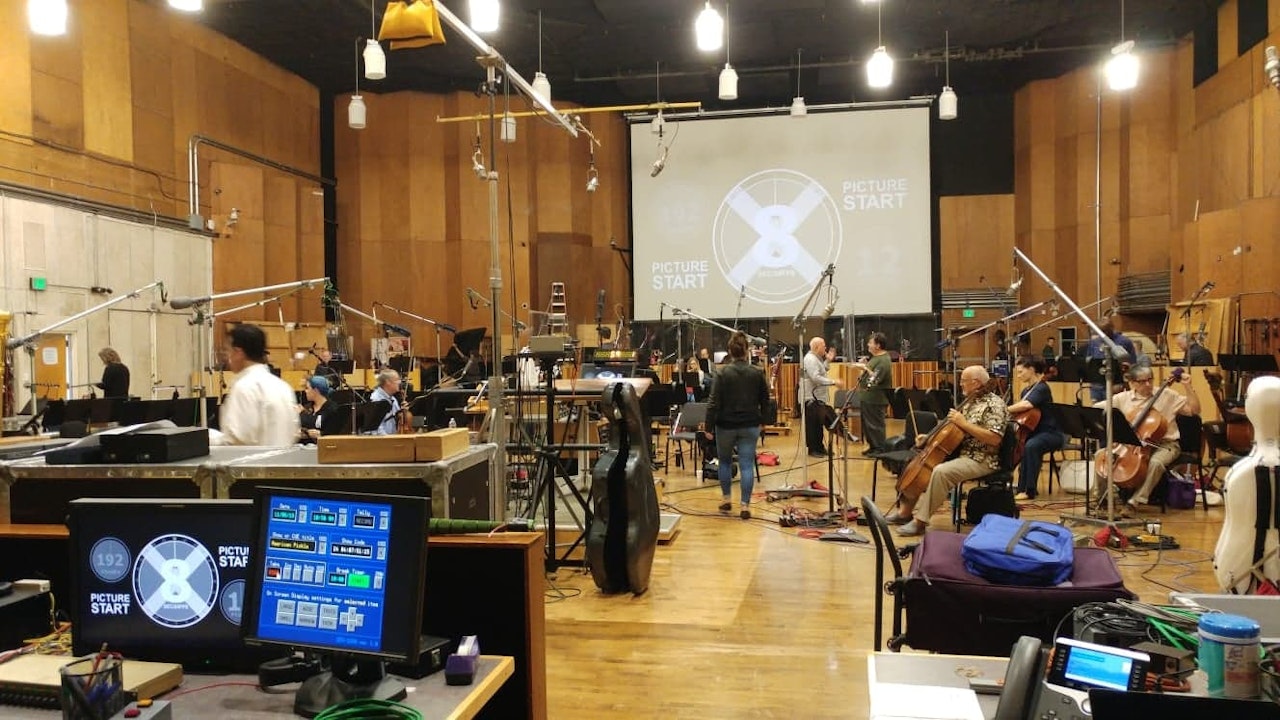
One of the things I love about Giacchino scores are the song names. Did you have any input?
A couple. When you’re making a soundtrack it has to be 28 tracks. Apparently with WaterTower Music you can’t go above that. There was a track called ‘One Billboard Outside Brooklyn, NY’ but that was left out. I think ‘Joining the Kaddish’ and ‘Klezmer Fight Club’ was mine. But the King of Puns is Paul Apelgren, the music editor. He’s been working with Michael for years and he’s gotten better and better with the track names. He’s also a fantastic editor who solved a lot of problems very creatively. I had never worked with a music editor before and now I never want to work without one ever again. I also ask him for names for other stuff I work on now too!
When you come to begin your initial ideas for a score, where do you start?
Watching the movie is the most important thing for me because I want to react and see how I feel about it. Then I would watch it again while actually playing some stuff on the piano, and get some themes going. I try to keep in mind what’s going to fit within the whole context of the movie. And ideally I would try to create something that would allow for variations and enough material to use that will be memorable, even if it’s just three notes that will catch my ear enough to use later on. So I’d start from the beginning and work my way to the end. Although with An American Pickle, I worked on the scene at the synagogue early on just to put an idea on paper. That scene is in many ways the climax of the film so I wanted to think about it while I was starting to write. But normally I go from the top to the end because it just makes sense, and the directors can also see how the themes progress and develop along with the characters.
Woodwinds have always been very prominent in my writing – not just in this movie, but in everything I do.
There’s a lot of the clarinet in this score. What is it that you particularly love about that instrument?
I’m a flute player, so I was in the woodwind section of the orchestra for years. So woodwinds have always been very prominent in my writing – not just in this movie, but in everything I do. The clarinet has this very Jewish connotation to it, and so it just made sense. It’s a bit of a cliché, but if it’s used right and done in a tasteful way it works. Luckily we had a player who was very good at bringing that Jewish spirit to the music – Joshua Ranz. I specifically requested a player who knows how to do Klezmer [a musical tradition of Eastern Europe Jews]. He came in and he played it perfectly. When I mocked up the Klezmer sequence the director [Brandon Trost] was so worried, because you can’t mock up Klezmer in Cubase. It doesn’t work. But I was like “don’t worry, when you hear it with the live players I promise you it’s gonna be great”. It worked so well and on stage everyone just laughed. Brandon was like “you were right”, and he was very happy and so was I. It was a cool moment.
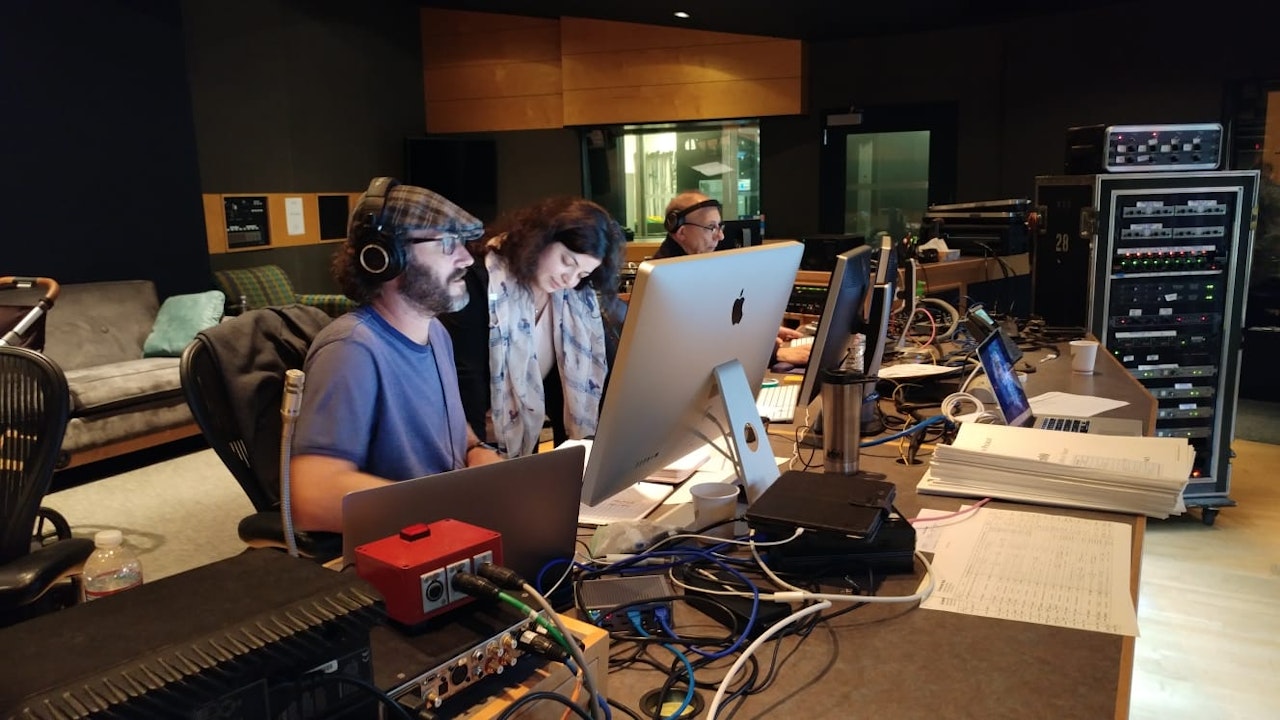
Much of the music illustrates the main character’s Jewish faith. Are there any scores that you took inspiration from or revisited while working on this? Or was the fact that you grew up Jewish research enough for you to do what you needed to do for this project?
I didn’t deliberately look for any Jewish score in particular. I am very familiar with Schindler’s List because of John Williams. It’s a theme that you remember from the first time you hear it, so I’m pretty sure that in my subconscious these type of scores were there. And I’m a huge John Williams fan. But for me, this was more about coming from a Jewish heritage. Being familiar with Israeli songs and Eastern European traditions… even the way the prayers are being sung in An American Pickle is very melodic. There are certain harmonies that are used that originated in the country that I come from. So I think it was more of that as opposed to watching other movies.
How did you go about selecting the additional instrumentation for this? There’s the harp, violin, a prominent brass section, a balalaika…
This score had a very Eastern European influence, so that’s why we had the balalaika. Some of it was actually acoustic guitar strums. And we used the tambourine for when Herschel gets really upset. But it still had to maintain a contemporary score sound, so we used the harp and the cello for the drama. You can’t do something that is fully Jewish because that would take away from the movie experience. It still needs to support the story and the emotions that the characters are going through. If you used just Jewish instrumentation it would only be Klezmer and it just wouldn’t fly. For this comedic, fantastical film to work you have to have that element inside an orchestra.
Having this big orchestra for all these big moments where Herschel builds his evil empire and when he runs away from the Cossacks was great. That was very different from Ben’s world, which was a little more modern and millennial, so if you follow his underscore it’s very minimal. There’s some woodwinds but almost no strings. We have some drums and a guitar. And it slowly builds to that scene in the synagogue with both Herschel that Ben gets the bigger orchestral treatment because it’s such an emotional climax. Having that instrumentation grow through the movie is something I really wanted to do.
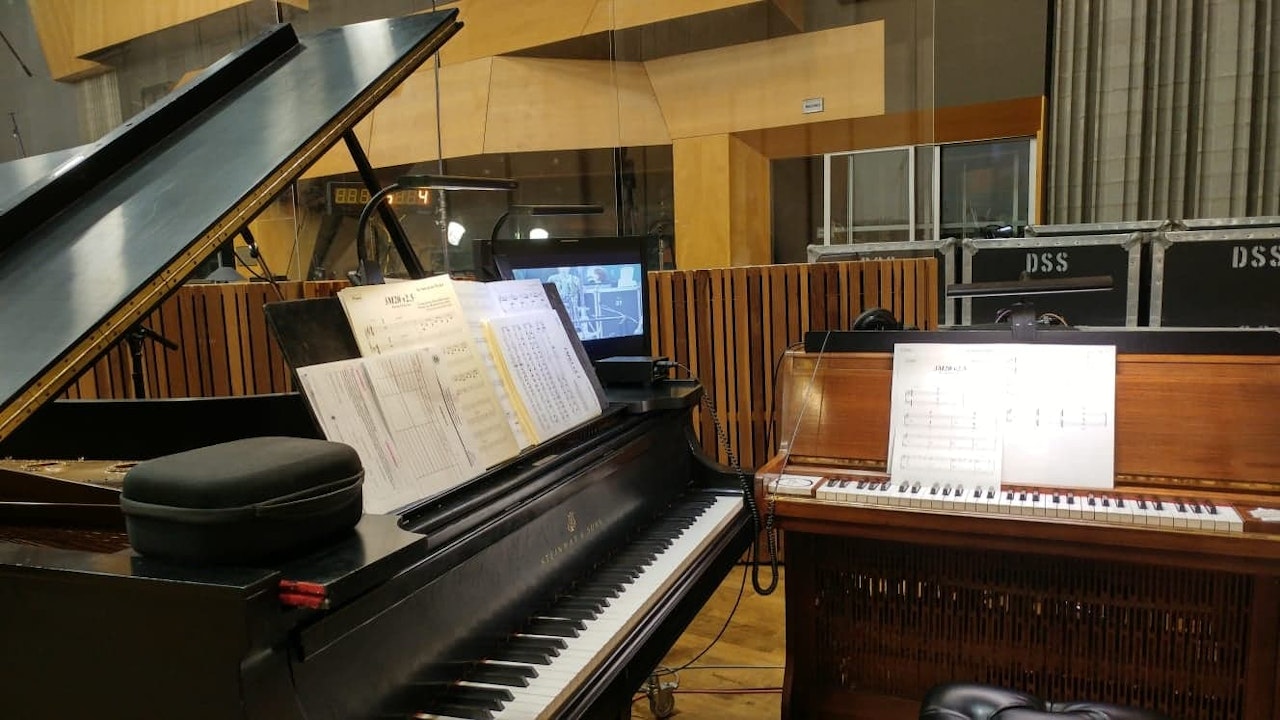
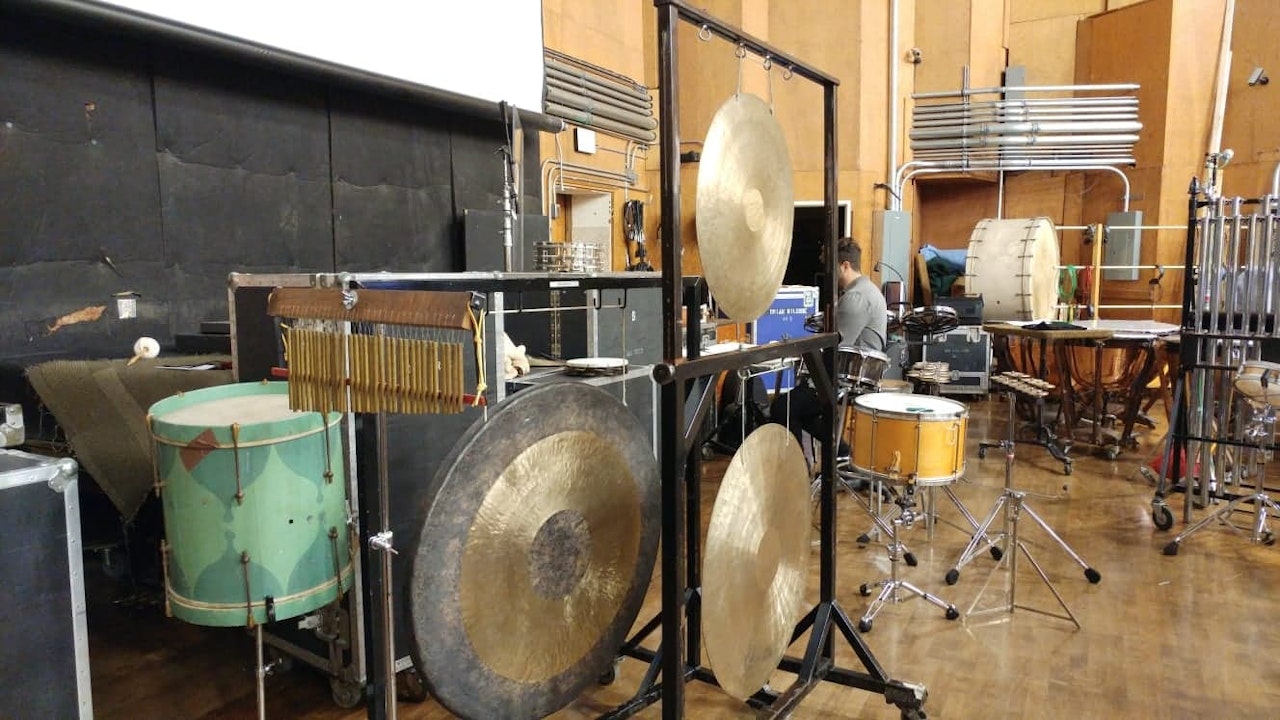
I was really surprised at how epic the score sounded at times. It’s not something you typically expect from a Seth Rogen movie.
I grew up on these big orchestral scores so I want to use all of it as much as possible. You could really go big in the montage sequences because there’s no dialogue. I got really lucky because Brandon told me that he wanted something that almost felt like an animated score. So he wanted something that would support the quirkiness but have a big heart. And he adored the older generation scores which had big orchestras and were really thematic. He didn’t like all this sound design stuff that is very contemporary. So he advocated for this type of score and that enabled me to go for it, so that was really helpful.
In what ways did An American Pickle push you as a composer?
I’ve never done anything on this scale. Taking a four and a half minute piece and turning it into sixty something minutes of score was a challenge in and of itself. And because of that animated quality, I felt like the music had a big role to fill and so I knew it would be really prominent in the mix. Also, the standard is really high when you’re working with someone like Michael. It’s exciting, but at the same time the expectations are enormous. So I had to figure it out.
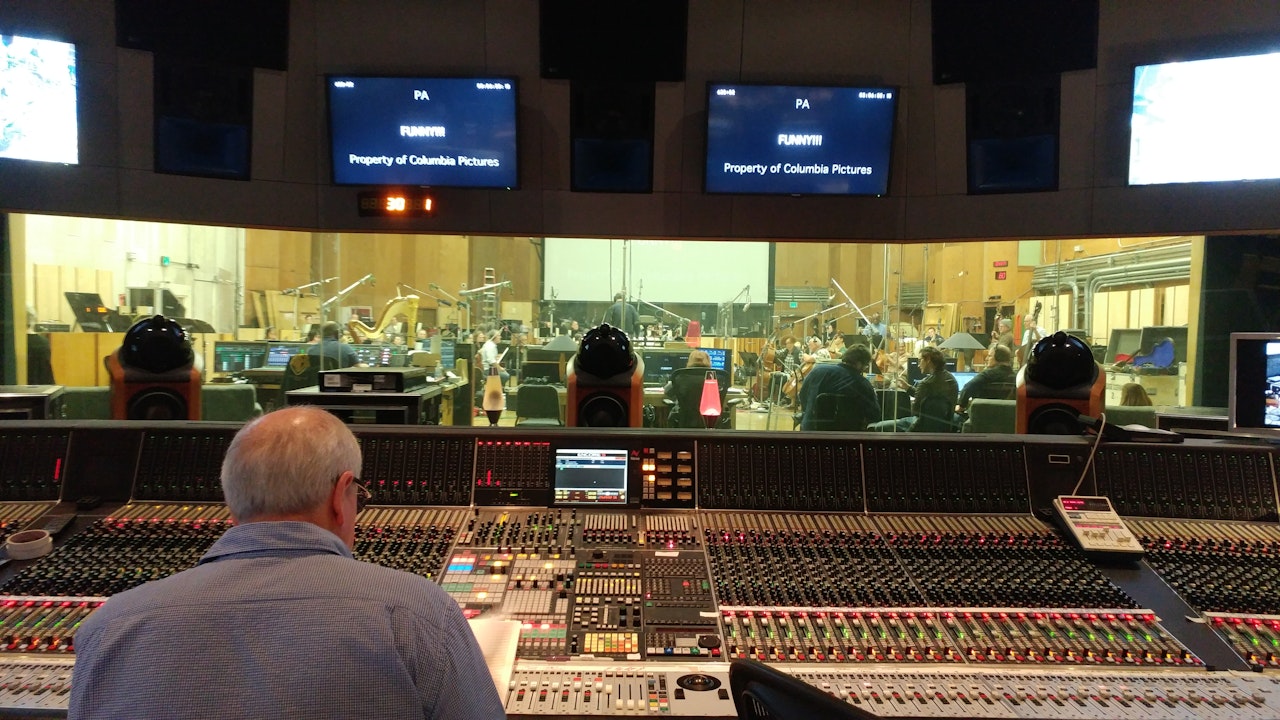
Well, you figured it out! You’re actually the first female composer I’ve interviewed. The last person to win the Oscar for Best Score was a woman, which is great. But why do you think there's still a lack of women in your side of the industry?
Most of the professions in this industry are like that. It’s not just a composer problem – its directors, writers, cinematographers, and many of the other significant roles. Part of it is the bro thing, It’s really hard to get into that room where people make decisions. Sadly, I feel like there was a lot of discrimination like “she’s a girl, she can’t do tech, how is she gonna produce this”. That’s really not true anymore and I feel like that’s slowly changing, but very slowly.
Even now I’m slowly getting my credits but it’s still going to take time until someone gives me a $100 million movie. There’s a lot of advocacy that’s being done by Women In Film and The Alliance of Women Film Composers, which I’m a member of. We’re trying to do that slowly with mentorships and opportunities and competitions. So while the industry is trending in the right direction it’s still going to take time. A lot of my female composer friends are in the same situation as me where we’d pitch for things and an Oscar-winning composer will get the gig because they’re more experienced. I’m really glad for Hildur [Guðnadóttir]. She worked so hard to get there, and she had that trajectory. She scored Sicario 2 and nobody talked about it. So she deserved it.
Do you have a dream project?
There’s a lot. If there was a fourth Lord of the Rings movie that would probably be it. But probably Star Wars. I also grew up on Pixar movies so if I can score one that would make me really happy.
